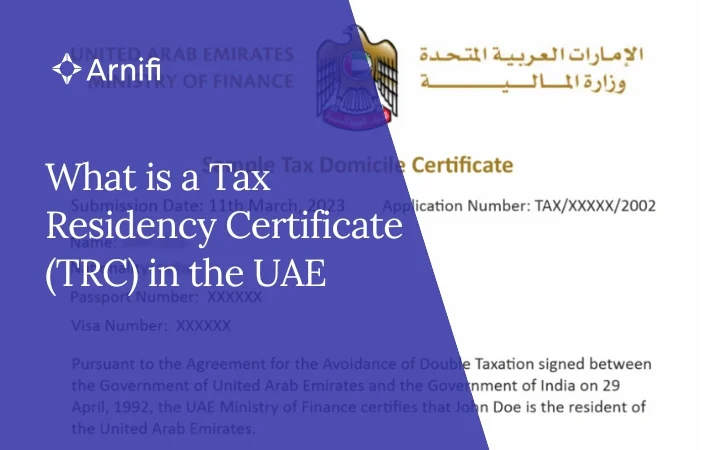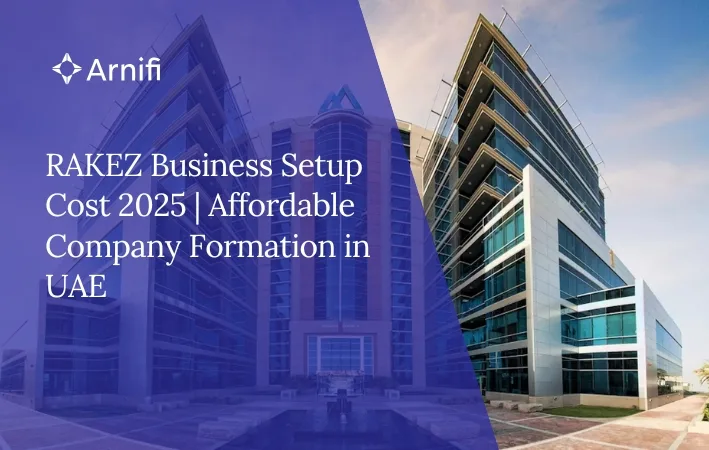Tax Benefits in the UAE: Your Ultimate Guide
by Manu Midha Dec 12, 2023  9 MIN READ
9 MIN READ
Understanding tax benefits can be daunting and confusing, but it is essential to ensure that you are taking full advantage of all the benefits available to you.

In this ultimate guide, we will break down everything you need to know about tax benefits in the UAE. We’ll cover the different types of benefits available, including tax deductions, credits, exemptions, and exclusions. You’ll also learn about the impact of these benefits on your personal finances, along with their advantages and potential drawbacks. We’ll delve deeper into common deductions and credits and explore how to qualify for them. Additionally, we will discuss tax shelters and upcoming changes to tax benefits in the UAE. By understanding these concepts thoroughly, you can optimize your taxes and save money while ensuring compliance with local laws.
Understanding Tax Benefits in the UAE
Maximizing potential tax relief in the UAE involves understanding how tax benefits can reduce the amount of tax owed, leading to a tax refund. These benefits aim to incentivize business activities and stimulate economic growth through specific investments or qualified expenses. It’s crucial to navigate UAE tax law to benefit from these opportunities.
Key Points to Note
When considering tax benefits in the UAE, it’s crucial to understand that these benefits can vary depending on your income, business activities, and investments. Staying updated on changes in UAE tax law is essential for leveraging these benefits effectively. Knowledge of tax benefits can be instrumental in strategic financial planning and decision-making. Consulting tax professionals can provide valuable insights into optimizing available tax benefits, while keeping track of tax deductions, credits, and exemptions is vital for effective tax planning.
Eligibility and Criteria
Understanding the criteria for tax benefits is essential to determine eligibility. In the UAE, eligibility is influenced by factors like income, investments, and business activities. Meeting specific criteria enables access to tax relief, contingent on complying with tax laws. Eligibility is based on fulfilling qualifying conditions and requirements.
Types of Tax Benefits in the UAE
Understanding the various tax benefits is crucial for effective financial planning. Tax deductions lower taxable income, potentially reducing the tax owed, while tax credits directly decrease the amount of tax owed, providing a dollar-for-dollar benefit. Leveraging these benefits can have a positive impact on personal and business financial situations.
Tax Deductions
Maximizing tax deductions in the UAE can reduce taxable income, resulting in lower tax liability. Eligible deductions may include expenses from business activities, investments, or education. Proper documentation is crucial for claiming deductions, optimizing tax planning strategies and achieving significant tax savings.
Tax Credits
Tax credits offer a direct reduction of the tax owed, benefiting individuals and businesses. In the UAE, they may apply to specific investments, energy-efficient activities, or education. Understanding eligibility criteria is crucial for leveraging available tax benefits. Proper assessment and utilization can result in substantial tax savings and contribute to overall financial management.
Exemptions and Exclusions
Understanding tax exemptions and exclusions in the UAE is crucial for maximizing benefits. Proper evaluation and compliance with tax regulations are essential for accurate utilization. Leveraging exemptions and exclusions can positively impact personal and business finances, leading to significant tax savings and financial optimization.
ALSO READ: How to Start a Business in the Kingdom of Saudi Arabia
The Impact of Tax on Personal Finances
Maximizing tax benefits leads to increased savings and improved cash flow. Proper utilization positively impacts financial planning and investment decisions, enhancing financial well-being. Understanding the impact is essential for effective wealth accumulation and optimizing personal and business finances.
Advantages of Tax Benefits
Accessing tax benefits can lead to decreased tax liability, enhancing overall financial stability. Leveraging tax benefits may result in a boost to disposable income and financial resources. Effective tax planning through benefits supports long-term financial goals. UAE tax benefits offer opportunities for optimizing personal and business finances, leading to improved financial security and economic well-being.
Potential Drawbacks
Balancing tax advantages with overall financial strategies is vital for sustainable financial well-being. Understanding the potential drawbacks of tax benefits is crucial for comprehensive financial planning. Careful evaluation can help mitigate potential risks and challenges, informing prudent financial decision-making. Recognizing potential drawbacks is essential for informed financial strategies.
A Deep Dive into Tax Deductions
Diving into tax deductions means lowering your taxable income and minimizing your tax bill. These deductions cover business and education expenses, and contributions to retirement accounts. By understanding the qualifications for deductions, you can maximize your tax return without amending your return.
Commonly Available Deductions
When preparing your tax return, consider deductions such as mortgage interest, property taxes, and charitable contributions. Medical expenses, student loan interest, and self-employment expenses can also be deducted. Self-employed individuals may benefit from deductions for qualified business income and home office expenses. Understanding these deductions is vital for tax planning.
Qualifying for Deductions
Meeting specific IRS guidelines and keeping accurate records is crucial for claiming deductions. Necessary expenses directly related to your business must be substantiated with receipts. Staying updated on tax law changes can help identify new deduction opportunities. Consulting a tax professional can provide valuable guidance on maximizing available deductions.
Exploring Tax Credits in the UAE
Exploring the UAE’s Tax Credits: Maximizing benefits through dollar-for-dollar reductions is vital. Common credits like child, earned income, and education tax credits provide significant relief. Understanding eligibility and refundable options is crucial. The UAE offers various credits to support specific activities, making it essential to explore and leverage them effectively.
Commonly Available Credits
Common tax credits encompass childcare, adoption, and retirement savings. Additionally, renewable energy, electric vehicle, and energy efficiency credits are prevalent. Higher education, dependent, and healthcare expense credits offer substantial benefits, including a reduction in the amount of income tax owed, such as the child tax credit and earned income tax credit. Research and development, as well as small business healthcare credits, foster business growth, necessitating a clear understanding of their interaction with deductions and the tax year.
Qualifying for Credits
Evaluating eligibility for tax credits involves specific criteria like income, expenses, and activities. Some credits are income-limited, requiring careful consideration of your tax situation. Understanding phase-out rules helps maximize benefits. Filing status, dependents, and income level impact eligibility. Utilizing tax credit calculators estimates potential tax savings.
Understanding Exemptions and Exclusions
Utilizing tax exemptions excludes certain income, lowering the taxable income and resulting in substantial tax savings. Understanding provisions regarding exclusions is crucial for effective tax planning, especially for specific types of income like foreign earned income and capital gains.
Common Exemptions and Exclusions
Leveraging tax benefits involves understanding common exemptions and exclusions in the United States. These include personal exemptions, dependents’ exemptions, and specific income sources such as gross income. Exclusions for gifts, inheritances, and certain benefits are also utilized for tax planning. Foreign earned income and housing exclusions provide tax benefits for expatriates, reducing the amount of your income that is subject to tax. Properly structured income sources can optimize tax efficiency.
How to Utilize Them Effectively
When it comes to utilizing exemptions and exclusions effectively, strategic income and transaction planning are crucial. Leveraging tax-favored accounts and investments can contribute significantly to maximizing the benefits of exclusions. Understanding the impact of tax law changes on exemptions and exclusions is also essential for effective tax optimization. Consulting with tax advisors and financial planners can provide valuable insights into crafting effective exemption and exclusion strategies. Proper documentation and compliance with tax regulations are equally important for optimizing tax benefits.
Navigating Tax Shelters in the UAE
Navigating tax shelters in the UAE involves legal strategies to minimize tax liability through income management and investment. Understanding options for tax-efficient wealth accumulation is crucial. Proper navigation can optimize tax benefits and reduce obligations. Tax shelters include real estate, retirement accounts, and tax-advantaged accounts for effective tax planning.
What are Tax Shelters?
Tax shelters are investment strategies that aim to minimize tax liability. These can include retirement accounts, real estate investments, and offshore accounts. By deferring or reducing taxable income, tax shelters offer potential long-term benefits. However, they are subject to strict regulations and scrutiny by tax authorities, so seeking professional advice is vital.
Pros and Cons of Tax Shelters
Tax shelters offer opportunities for tax savings, but they can involve complex legal structures and high fees. Understanding the tax implications and risks involved is essential, as regulatory changes can impact their effectiveness. Evaluating these shelters requires careful financial planning to maximize benefits without exposing oneself to undue risk.
Are there any upcoming changes to tax benefits in the UAE?
Upcoming changes to tax in the UAE are on the horizon. Businesses and individuals can expect new incentives and relief programs, potentially impacting eligibility criteria and deduction limits. Staying up-to-date with these changes is crucial for compliance and maximizing tax benefits.

Conclusion
In conclusion, understanding tax in the UAE is crucial for maximizing your personal finances. By taking advantage of tax deductions, credits, exemptions, and exclusions, you can significantly reduce your tax liability and save money. However, it is important to note that there may be potential drawbacks associated with certain tax benefits, and it is essential to navigate them effectively. Stay informed about any upcoming changes to tax laws and regulations to ensure that you are making the most of available tax benefits. Consult with a financial advisor or tax professional for personalized guidance. Taking proactive steps to understand and utilize tax benefits can have a significant positive impact on your financial well-being.
About Arnifi
Arnifi is digital first Corporate service provider helping companies enter the Middle East region, starting with UAE and Saudi Arabia markets. Founded and backed by professionals from Amazon, Souq and other large companies operating in KSA – the team understands what it takes to succeed as a startup in both UAE and Saudi Arabian markets, apart from going through the setup process multiple times. Arnifi will provide a truly digital experience to entry and scale up of companies both UAE and Saudi Arabia. The Arnifi promise is simple, yet revolutionary, use technology and a great team to provide transparency, efficiency and great customer experience in the whole process. Check out at – www.Arnifi.com for more details.
ALSO READ: Understanding the taxation system in the UAE
Top UAE Packages

Related Articles
Top UAE Packages



